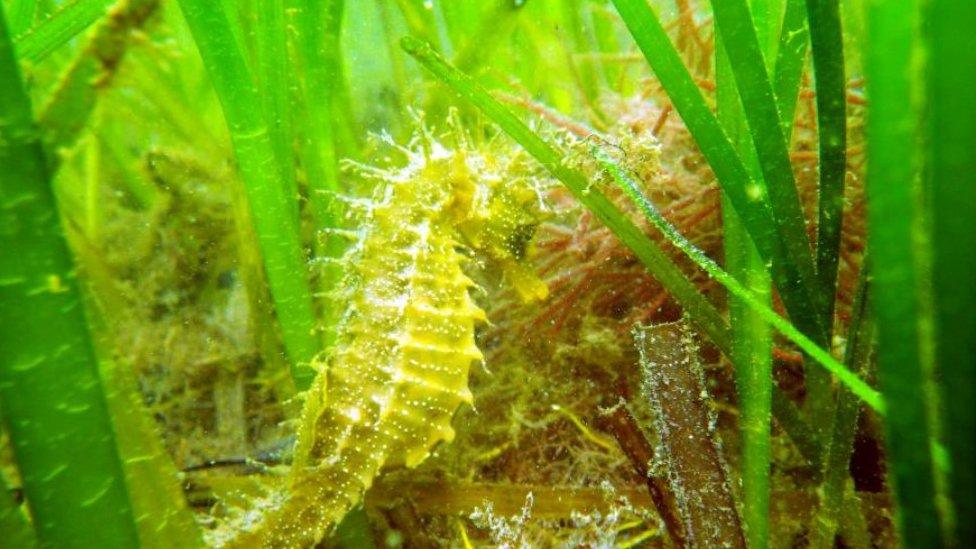Offshore oil rig consents 'illegal', charity claims
- Published
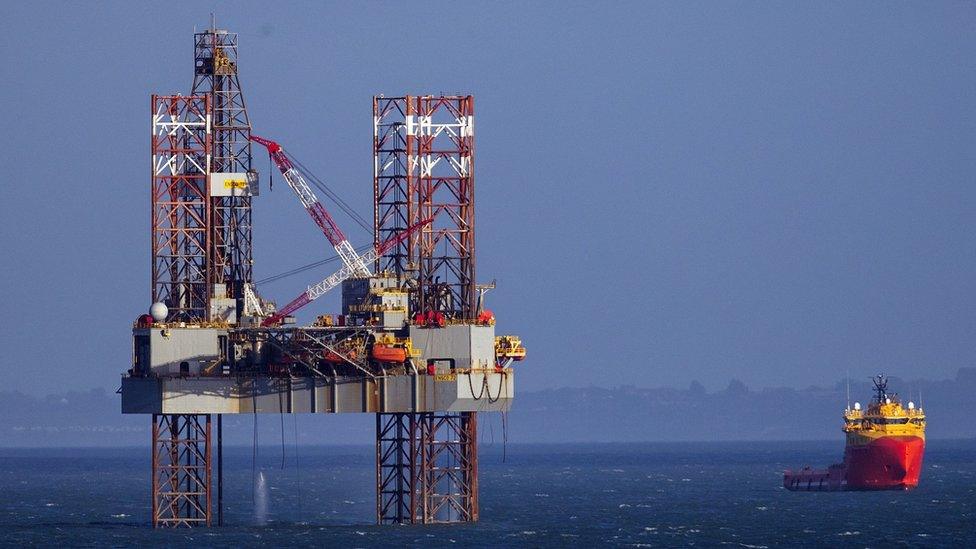
Energy firm Corallian drilled for oil in Poole Bay in February and March
Consents for oil drilling off the UK coast are in breach of European law, a wildlife charity has claimed.
The Seahorse Trust has applied for a judicial review of a decision to allow a temporary oil rig in Poole Bay, Dorset, earlier this year.
It said government regulations in general did not allow applications by energy firms to be fully scrutinised.
The Department for Business, Energy and Industrial Strategy said it did not comment on ongoing legal proceedings.
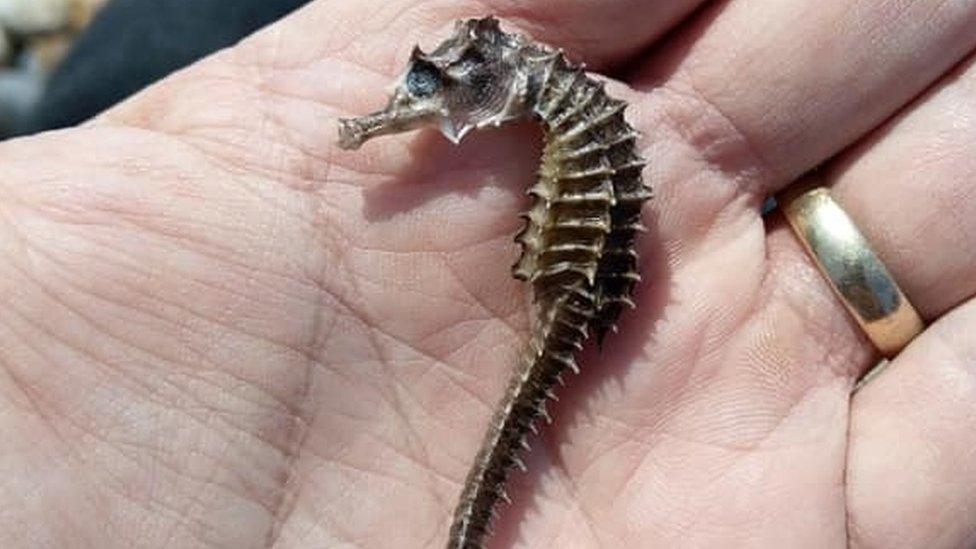
The Seahorse Trust said dead seahorses, dolphins and a seal had washed up near the drilling site
Energy firm Corallian previously said it had found "extensive" reserves of oil during its exploration of the Colter South area in February and March.
Dorset Wildlife Trust said an "unusually high number" of dead seahorses subsequently washed up on Dorset beaches.
The Seahorse Trust said nine had been found in or near Poole Bay since late March, as well as two dead dolphins and one seal.
Director Neil Garrick-Maidment said seahorses reacted badly to "excessive noise" from drilling and the deaths were "very, very coincidental".
"Dormant diseases take hold and kill them when they get stressed," he said.

The group Save Our Shores protested against the Dorset rig
The trust has issued High Court proceedings against Energy Secretary Greg Clark and the Oil and Gas Authority.
In court papers, the charity said the defendants had failed to properly adopt the European Union's Environmental Impact Assessment (EIA) Directive, because there was no requirement in UK law to properly publicise applications.
Susan Ring, a partner at law firm Harrison Grant, said: "As a result, the application to drill for oil offshore has not been subject to a transparent environmental impact assessment process required by the directive, so that the public, including my client, has been shut out of the process.
"In short, the [UK government's] Offshore EIA Regulations are not fit for purpose."
Corallian said it would not comment on the legal action against the two regulators.
- Published18 April 2019
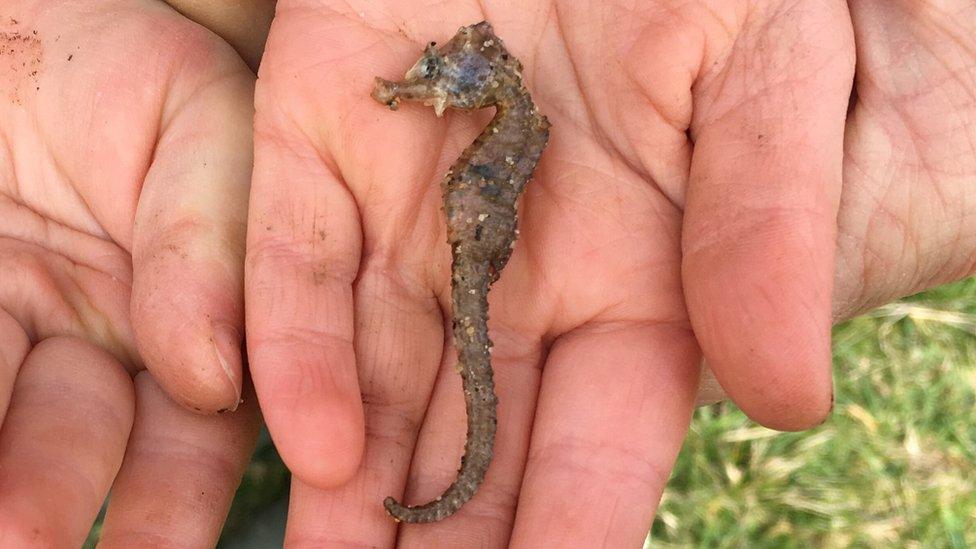
- Published19 February 2019
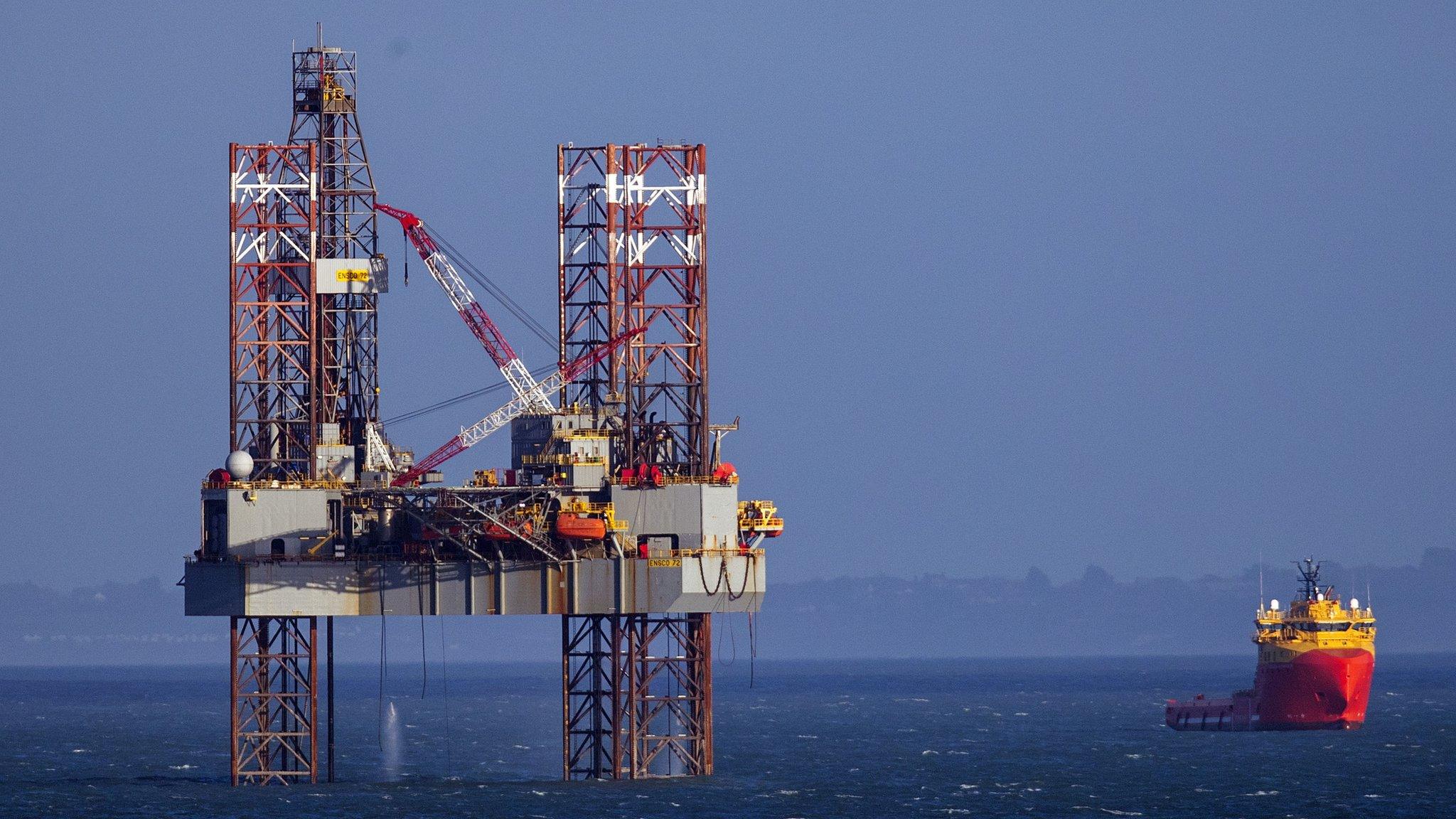
- Published26 January 2019
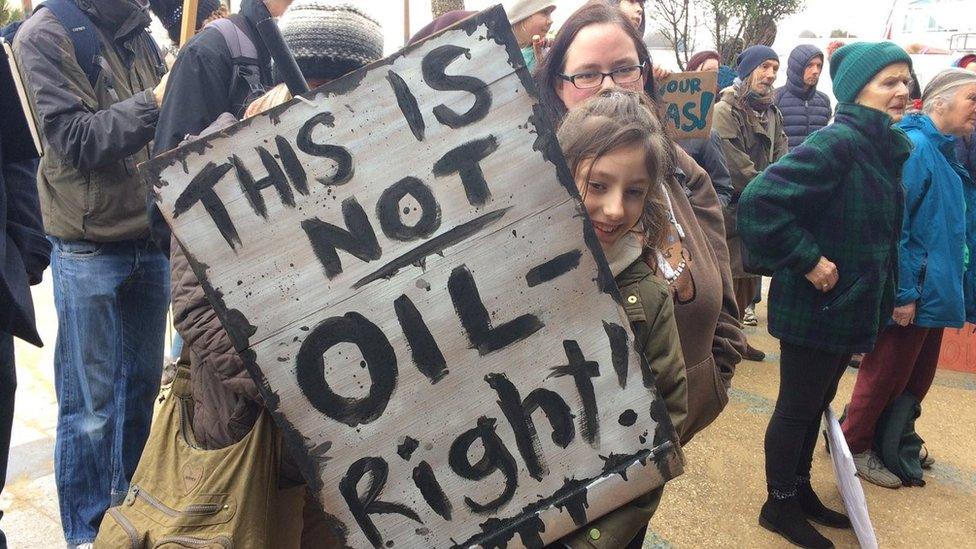
- Published25 May 2018
